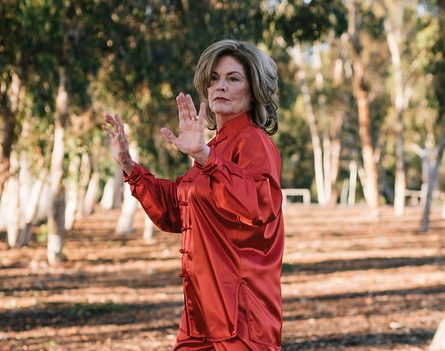Before I began practicing tai chi four years ago, I thought it was a Chinese martial art form from thousands of years ago, shrouded in secrecy and mystery. Now it has become part of my daily routine.
And I’m excited to share it with you.
Numerous research studies have conclusively demonstrated the benefits of tai chi:
1. Falls prevention
Falls are the leading cause of injury death among older people. Numerous studies have shown that tai chi reduces falls by 60 percent.
2. Chronic disease alleviation
Tai chi has also been shown to effectively reverse or mitigate the symptoms of arthritis, diabetes, and hypertension.
3. Improved memory and cognitive function for patients with Alzheimer’s
This is the one I’m most excited about.
Did you know that around 6 million Americans have Alzheimer’s today? And by 2050, there will be 14 million of us. Deaths from Alzheimer’s disease have increased 68 percent since 2000, while deaths from other diseases like heart disease, breast cancer, prostate cancer, and HIV/AIDS have declined during the same time period.
And there is no cure for Alzheimer’s.
Tai chi appears to be an effective non-drug therapy for delaying the onset and slowing the progression of Alzheimer’s and other dementias by providing social (if practiced with others), physical and intellectual stimulation.
4. The fourth reason is simple but multifaceted. Tai chi is easy to learn and practice. It’s widely available at little to no cost. And it’s fun.
Then why do so few of us practice tai chi?
One reason: Misconceptions.
I know that because there are some questions I often hear:
Is tai chi a cult? No.
Is tai chi a religion? No.
Can I be a Christian and do tai chi? Yes.
Do I have to learn tai chi from a Chinese master? No.
So…do yourself a favor and find a tai chi DVD, an online class, or a tai chi studio near you.
I doubt that you’ll ever regret it.

